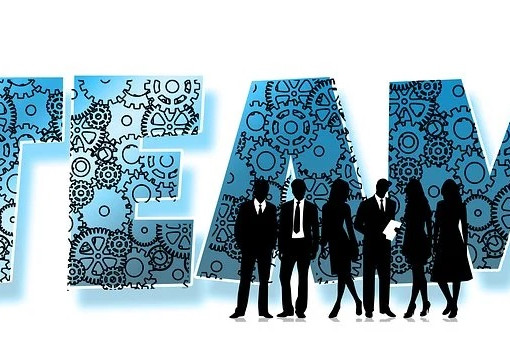It used to be very simple to deal with marijuana issues and employment. It was illegal everywhere, we all had zero tolerance policies and so any evidence of marijuana use resulted in a swift reaction. In a pre-employment screen, that meant withdrawal of the offer of employment.
A positive result of for-cause testing of a current employee would result in termination or mandatory treatment with required follow-up. Now, it is not so simple.
Over 35 states have medical marijuana laws and over a dozen now make recreational use legal. (It is hard to quote an exact number as it changes almost daily). However, on the federal level, marijuana use is still illegal.
As a result of these changes, HR is faced with new questions and possible legal pitfalls. If an employee or candidate has a medical marijuana card, does the organization have to accommodate this? If so, how? You can’t have a buzzed employee taking care of patients, so what restrictions can be placed on its use by the facility?
How does the legalization of both medical and recreational marijuana use impact our pre-employment screens and for-cause testing? Alcohol testing is pretty clear-cut. A certain level means the employee in question was under the influence. Marijuana remains in the system much longer. Evidence of its presence may mean that the candidate or employee used it weeks ago and may not be currently impacted, or was around some else who used it.
I am not a lawyer, but there are some general answers to these questions. The laws are all over the board depending upon the state so I would seek legal counsel to make sure that your policies and practices are appropriate for your state.
State vs. Federal laws
As stated, over 35 states have laws allowing for the medical use of marijuana. This means, that an individual with a qualifying condition approved by a doctor can receive a medical card allowing for marijuana use for treatment of a medical condition. With this card they will not be prosecuted under state law. But wait–marijuana use is still illegal under federal law.
Of the states that approve medical marijuana use, some still allow for zero-tolerance work policies regardless of whether the use occurs during nonwork time. A positive test result can result in adverse action by the employer. Another caveat allows discrimination against the medical marijuana user in order to maintain compliance with federal regulations, contracts or licensing arrangements.
Many of the states that allow medical marijuana use have laws that prevent discrimination against the individual based upon his/her status as a registered user or because of a positive drug test. However, adverse action can be taken by the employer when it is determined that they were using or under the influence while at work.
In other states that allow medical marijuana use, the laws either expressly allow the employer to take adverse action for off-duty use or they do not address the issue.
In many cases, even state courts in states that allow recreational use have sided with the employer. Courts in Colorado, Oregon, California and Washington have ruled that employees using marijuana off-duty for medical reasons may be terminated as the result of a positive drug test. These rulings were based upon the fact that it is not considered a lawful activity since it is against federal law.
This defense may disappear if the federal law changes.
The state laws are changing so rapidly that almost every website providing information on state laws is somewhat lagging. Use of marijuana while at work is clear cut. The biggest questions seem to surround off-duty work. State laws are changing so rapidly that most websites addressing this issue have difficulty staying current. Here is a link to a relatively good overview of state laws.
Pre-employment screens
As you know, organizations are much more free to test applicants than employees. It is a common practice for most healthcare organizations to require a drug/alcohol screen after making a conditional offer of employment. There is no prohibition in any state against this type of testing.
The issue in some states is what you do with the results.
Some states prohibit adverse employment actions based upon the applicant being registered for medical marijuana use or being a caregiver for someone who is registered. The applicant’s status alone should not be a determining factor.
For applicants testing positive who are not registered for medical marijuana use, employment can be denied in almost every state. Even those states that have made recreational marijuana use legal, employment can be denied for a positive screening.
It may be less clear when the applicant is approved for medical marijuana use. In some states, the test results alone are not enough to deny employment. In others, it is.
The safest approach would be to treat these individuals the same as anyone who needed a reasonable accommodation. What is the medical reason for the use and can the organization accommodate it? This would never have to include using or being under the influence while on duty or at work.
Also, employment can be denied to these individuals in safety-sensitive positions. One could probably make a strong argument that this includes all patient care positions. It may be less clear for environmental services, dietary, etc.
For-cause testing
Once employed, there are two types of drug testing that may occur: random and for-cause testing.
Random drug testing of employees is fairly uncommon in healthcare. It may occur in some organizations due to government contracts or other safety concerns. It often occurs in transportation or other industries where substance impairment has proven to be a safety issue.
Generally, random testing can still be done as long as it does not discriminate against registered medical marijuana users. In other words, you can’t test all registered users–you can’t “randomly” test only job classes that contain a registered user, nor can you mandate that that your random test should contain at least X number of registered users.
Random must truly be random and must be conducted for safety reasons.
Most healthcare organizations are more familiar with for-cause testing. A for-cause test occurs because of a triggering event where drug use is to be ruled in or out as a causing factor.
The triggering event could be the employee’s behavior or appearance (demonstrating mannerisms or actions typical of being under the influence), work accident, patient incident, missing medications, etc. We are all familiar with these instances where drug impairment may be a causative factor and needs to be ruled out.
For-cause testing is generally allowed. Most states that allow medical marijuana use allow the employer to take adverse action against the employee if there is a good faith belief that the employee used or was under the influence while on duty. Generally, a positive drug test is not a good faith belief.
Some states allow the registered user to challenge the adverse actions. Others require prior notification and establish guidelines under which the testing must occur.
I would not be afraid of for-cause testing. It needs to be done when an event occurs and a determination needs to made as to whether drugs were a contributing factor. However, I would make sure I had a very clear understanding of my state’s laws governing this.
Minimizing risk
If your state allows zero-tolerance policies, you can continue with these. Surprisingly, some of the most liberal states that allow recreational marijuana use will still allow zero-tolerance work policies.
The pitfalls generally arise around the registered medical marijuana user.
- If a candidate who is a registered medical marijuana user tests positive on a pre-employment screen, don’t deny employment based upon their status as a registered user. If the position is safety-sensitive, then employment can be denied based upon test results. If your state allows adverse action based upon the test results, this is your chance. You will have to live with the results either way but you have more freedom to make choices prior to employment. If your state does not allow adverse actions in this case, treat it as you would any other disability and see if it can be accommodated reasonably.
- Identify safety sensitive positions upfront. Don’t get a registered user’s failed test results and then try and decide if the position is safety sensitive. If employment is denied after a torturous process of determination, it may look as though it were a pretextual reason for denial. You can’t discriminate based upon status, but all jobs must be performed without impairment.
- Fitness for duty and reasonable accommodation that may be required should be determined by medical professionals. I always wanted this to be one step removed from HR, should it was the responsibility of the employee health function. This included the employee health RN and physician input as required. For example, one legal website illustrated how a later work start time might be a reasonable accommodation for someone using medical marijuana to treat glaucoma the night before. I have seen a lot of medical marijuana use for the treatment of “anxiety” and am not sure how this could ever by accommodated.
- Train your management staff. I would suggest you start by treating the registered marijuana user as you would someone with a disability. Being a registered user should never be reason to discriminate as having a disability should never be a reason for discrimination. The key is always ability to do the job. Managers should know that for-cause testing must have a cause (duh). Behavior, job performance, and productivity issues should drive testing–not the employee’s status as a registered user.
- Require HR approval for all for-cause testing and subsequent job actions. No manager should be allowed to order for-cause testing without HR’s input and approval.
- Take the strictest approach allowed by your state laws. Regardless of your personal views on marijuana use and legalization, we are physically taking care of people. The best approach is that all caregivers are free from the influence of any medications or substances. That is why we require fitness-for-duty evaluations on employees returning from medical leave, extended absences, or long-term medication prescriptions.
Regardless of your personal feelings, there have been multiple studies that link marijuana use to increased accidents at work. It is not a moral issue for healthcare organizations, but a safety issue. It is critical that HR knows the laws affecting the states in which their organization operates.





